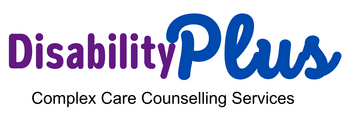Real Stories, Real Lives, Real Impact, Lived Experience Matters
Counselling for Deaf & Hard of Hearing People (BSL/Lip Reading)
Questions & Enquiries
Self-Paid Referral Form & Pricing
Free Funding Referral Form (Wales Only)
Professional Referrals
Lived Experience Matters
Adjusting to life as a Deaf or hard-of-hearing person in a world that often prioritises hearing can feel overwhelming.
You don’t have to navigate this journey alone. We understand the unique challenges you face, and our team of Deaf and hearing therapists who have lived experience in the Deaf community is here to provide both practical solutions and the emotional support you need.
Whether you’ve been diagnosed with hearing loss, are adjusting to new hearing technology, or are seeking support to overcome communication barriers and social challenges, we’re here to help.
"Your voice may be expressed differently, but your story deserves to be heard.
We're Here to Listen."
What makes us specialist:
♥ Deaf & Hearing Psychotherapists
♥ Deaf & use BSL, Your Psycotheraist will be Deaf
♥ Deaf & Oral, You Choose Between Deaf or Hearing Psychotherapist
♥ Hard of Hearing: Your Psycotheraist will be Hearing but from a Deaf background
♥ Team of Registered BACP & UKCP Psychotherapists
♥ Free Funding Applications (Wales only)
♥ Self-Paid, Start Counselling within Seven Working Days
♥ Professional Organisation Referrals from GPs, Mental Health Providers, Charities and Schools
We are a Team that Understands what it’s like Living with a Hearing Impairement.
Lived Experience Matters
Quick Navigation Guide
This webpage is your comprehensive guide to counselling topics.
We’ve designed it to be easy to navigate, so you can quickly find the information you need.
Simply click on the button corresponding to the section you’re interested in, and you’ll be transported directly to that content. It’s that simple!
Contact us if you cannot find what you are looking for

Daily Triggers: Thrive, Not Just Cope.
Daily life throws challenges at Deaf and Hard of Hearing individuals.
Counselling helps you build resilience against these triggers, transforming frustration into empowerment.
We focus on:
Identifying Your Unique Triggers: Communication, social exclusion, information access, technology, environment, or negative attitudes.
Shared Understanding: Counsellors with Deaf experience offer genuine validation and support.
Empowering Solutions: Develop skills to navigate barriers and live a fulfilling life.
Don’t just manage, thrive.
We’re here to help.
Real Stories, Real Lives, Real Impact, Lived Experience Matters
Counselling for Deaf & Hard of Hearing People (BSL/Lip Reading)
Questions & Enquiries
Self-Paid Counselling Referral Form & Pricing
Free Funding Referral Form (Wales Only)
Professional Referrals
"Your voice may be expressed differently, but your story deserves to be heard.
We're Here To Listen."
Adjusting to life as a Deaf or hard-of-hearing person in a world that often prioritises hearing can feel overwhelming.
You don’t have to navigate this journey alone. We understand the unique challenges you face, and our team of Deaf and hearing therapists who have lived experience in the Deaf community is here to provide both practical solutions and the emotional support you need.
Whether you’ve been diagnosed with hearing loss, are adjusting to new hearing technology, or are seeking support to overcome communication barriers and social challenges, we’re hereto help.
Lived Experience Matters
Expanding Access and Choice
Finding the Right Therapy for You
Counselling for Trauma (EMDR)
Usher Syndrome: Finding Support When It's Rare and Misunderstood
Why Choose Us?
Specialist Counselling for Deaf & Hard of Hearing People
What to Expect from the Start of Counselling
From the moment you reach out, we aim to create a safe and supportive space for you. We know sharing your experiences and vulnerabilities can be difficult, so our initial sessions focus on building trust and rapport.
Support for Daily Triggers
Counselling can help you navigate the daily life triggers that impact your well-being as a Deaf or Hard of Hearing person.
We understand that even with effective coping strategies, daily life in a hearing-centric world can present challenges that stir up difficult emotions.
How We Support Your Mental Health
Living with hearing loss in a hearing world brings unique challenges. Know that you’re not alone, and seeking support is a strength.
We’re here to help you navigate these challenges and build a fulfilling life.
Contact us if you cannot find what you are looking for


What to Expect from Counselling
Let’s discuss how our specialised mental health service can support you on your journey as a Deaf or hard-of-hearing individual.
We understand that navigating the world with hearing loss presents unique challenges. We’re here to help, offering professional expertise and a deep understanding of Deaf culture and communication.
From the moment you reach out, we aim to create a safe and accessible space for you. We know sharing your experiences can be difficult, so our initial sessions focus on building trust and rapport.
Our counsellors include Deaf professionals who use BSL and hearing professionals with lived experience in the Deaf community, so we truly understand what you’re going through.
We’ve navigated similar communication, emotional, and social adjustments; our lived experience can offer connection and understanding. We’ll work together to understand your specific needs and goals.
We’ll also take the time to learn about your background, any relevant medical history, your current emotional well-being, and any challenges you’re facing.
This comprehensive assessment will allow us to create a personalised support plan for you.
Our therapy approach is grounded in best practices for Deaf mental health. We use proven treatments, such as Cognitive Behavioural Therapy (CBT) and Acceptance and Commitment Therapy (ACT), adapted for effective communication with Deaf and hard-of-hearing individuals.
We’ll explore the root causes of any challenges you’re experiencing, whether related to communication barriers, social isolation, anxiety, depression, trauma, or other mental health concerns.
We’ll also focus on practical strategies for improving your daily life. These might involve developing coping skills for managing communication in a hearing world, building confidence in your identity as a Deaf or hard-of-hearing person, improving your communication and social skills, or supporting you in pursuing your personal, educational, or vocational goals.
Our counsellors can share practical tips and strategies from their experiences, offering valuable insights and support.
One of the most powerful aspects of our service is the shared understanding we offer.
Working with a counsellor who is Deaf or has a deep knowledge of Deaf culture can make a profound difference.
This shared understanding can be incredibly validating and can reduce feelings of isolation. Our counsellors are role models, demonstrating that a fulfilling life is possible.
Our support doesn’t end after a few sessions. We’re here for the long haul. Ongoing therapy sessions provide continued support, allow us to adjust your plan as needed, and help you reinforce your coping skills.
We’ll also help you develop strategies for managing potential setbacks and connect you with other resources within the Deaf community, such as support groups and Deaf mentors.

Daily Life Triggers
Let’s talk about how counselling can help you navigate the daily life triggers that can impact your well-being as a Deaf or Hard of Hearing individual.
We understand that even with effective coping strategies, daily life can present challenges that stir up difficult emotions. We aim to help you develop the tools and resilience to manage these triggers and live a more fulfilling life.
We’ll work together to identify your specific triggers. Everyone’s experience with hearing loss is unique, so it’s essential to understand what specifically affects you.
These triggers might be related to communication, social interactions, access to information, or societal attitudes. Some common examples include:
Communication Triggers: These can include situations where you struggle to understand or be understood, such as noisy environments, conversations with hearing people who don’t sign or speak clearly, or difficulty accessing interpreters. These can trigger feelings of frustration, exclusion, or anxiety.
Social Triggers: These might involve feeling excluded from conversations or social events, experiencing microaggressions or discrimination related to your hearing loss, or navigating environments that are not accessible. These can lead to feelings of isolation, anger, or sadness.
Information Access Triggers: These can include difficulty accessing information due to a lack of captions, transcripts, or BSL interpretation or feeling overwhelmed by a world that often prioritises auditory information. This can trigger feelings of frustration, dependence, or being left behind.
Technological Triggers: Problems with hearing aids, cochlear implants, or assistive listening devices can be a source of frustration and anxiety. Difficulty with online platforms that lack accessibility features can also be a trigger.
Environmental Triggers: Noisy or visually distracting environments can be particularly challenging. A lack of visual cues or poor lighting can also make communication difficult.
Attitudinal Triggers: Negative attitudes or assumptions from hearing people about deafness or hearing loss can be hurtful and frustrating. Experiencing ableism or audism can be a significant trigger.
Counselling provides a safe space to explore these triggers without judgment. We’ll help you understand how these triggers affect you emotionally and physically. We’ll also work together to develop specific coping strategies for each trigger type. This might involve:
Developing Awareness: By becoming more aware of what situations or events will likely trigger complex emotions, you can prepare yourself mentally and emotionally.
Building Coping Skills: Learning practical skills like relaxation techniques, mindfulness practices, and cognitive restructuring (challenging negative thoughts). These tools can help you manage your emotional responses in the moment. We can also work on communication strategies and self-advocacy skills.
Creating a Plan: Develop a plan for effectively responding to triggers. This might involve avoiding certain situations (when possible), having a support person you can call, or using a specific coping skill when you feel overwhelmed. We can also discuss strategies for advocating for your communication needs.
Acceptance and Adaptation: You may need to accept that some triggers are unavoidable. Counselling can help you take this reality and focus on adapting to the ongoing challenges of living in a hearing-centric world. The aim isn’t to eliminate all triggers but to manage their impact on your life.
Reframing Thoughts: Learning to reframe negative thoughts associated with triggers. For example, instead of thinking, “I’ll never be able to participate fully,” you might learn to think, “I can advocate for my needs and find ways to participate that work for me.”
Building Resilience: Developing resilience is the ability to bounce back from challenges. Counselling can help you identify and build on your strengths to handle difficult situations better.
Our counsellors who are Deaf or have a deep understanding of Deaf culture and BSL have personal experience with many of these triggers and can offer valuable insights and support.
This shared understanding can be incredibly validating and can reduce feelings of isolation.
Ultimately, counselling is about empowering you. We want to help you develop the skills and confidence to navigate the daily challenges of living as a Deaf or Hard of Hearing individual and live a meaningful and fulfilling life.
We’re here to support you every step of the way.

Support For Your Mental & Emotional Health
Navigating life as a Deaf or Hard of Hearing individual can bring about a range of emotional and mental health challenges.
It’s important to know that the Deaf community shares these experiences and that seeking support is a sign of strength.
We’re here to help you navigate these challenges and build a life of well-being and resilience. Let’s talk about some of the mental health issues you might encounter and how counselling can help:
Grief and Loss: You might experience grief related to communication barriers, missed opportunities, or societal misunderstandings.
Counselling provides a safe space to process these feelings, acknowledge your experiences, and explore new possibilities for connection and fulfilment. We can help you find ways to honour your experiences while navigating a hearing-centric world.
Depression: Experiences of marginalisation, communication difficulties, and societal biases can contribute to feelings of sadness, hopelessness, and loss of interest in things you once enjoyed. Depression can affect your sleep, appetite, and energy levels.
Counselling can help you identify the root causes of your depression, develop coping strategies specific to Deaf and Hard of Hearing individuals, and rediscover sources of joy and meaning in your life.
Anxiety: You might experience anxiety about communication situations, social interactions, or access to information. Anxiety can manifest as worry, fear, panic attacks, or difficulty relaxing.
Counselling can teach you relaxation techniques, mindfulness practices, and cognitive strategies to manage your anxiety and regain a sense of calm and control, all within the context of your communication needs.
Trauma: If you’ve experienced communication-related trauma, discrimination, or other forms of trauma, you might experience flashbacks, nightmares, or intense emotional reactions.
Counselling can help you process the traumatic experience, develop coping mechanisms for trauma symptoms, and reclaim your sense of safety and well-being.
Identity and Self-Esteem: Navigating a hearing world can significantly impact your sense of identity and self-esteem. You might struggle with feelings of self-consciousness, shame, or inadequacy.
Counselling can help you challenge negative thoughts about yourself, develop self-acceptance, and build a positive identity as a Deaf or Hard of Hearing person.
Relationship Challenges: Communication barriers can affect relationships with hearing partners, family members, and friends.
Counselling can help you improve communication skills, navigate relationship changes, and strengthen your connections with loved ones.
Social Isolation: Limited access to information, communication challenges, and societal attitudes can contribute to feelings of social isolation. You might feel excluded from social events or struggle to connect with others.
Counselling can help you develop strategies for increasing social engagement within the Deaf community, building support networks, and advocating for your accessibility needs.
Accessibility and Advocacy: You might face challenges related to accessing mental health services, education, employment, or other resources. Counselling can empower you to advocate for your needs and navigate systems not always designed with Deaf and hard-of-hearing people in mind.
Communication Access: We understand the importance of accessible communication. We offer counselling in BSL and for oral clients, ensuring you can communicate comfortably and effectively with your counsellor.
It’s important to remember that you’re not alone in these experiences. Many Deaf and Hard of Hearing individuals face similar challenges.
Counselling provides a safe and supportive space to explore these issues, develop coping skills, and work towards healing and well-being.
Our counsellors who are Deaf or have a deep understanding of Deaf culture and BSL can offer unique insights and support. We’re here to help you build a life of resilience, purpose, and joy.

Finding the Right Therapy for You
We understand that different challenges may benefit from other therapeutic approaches.
Our skilled team of therapists draws upon various evidence-based methods to provide you with the most effective support for your specific needs.
Here are some of the approaches we use and the types of issues they can help address:
Cognitive Behavioral Therapy (CBT)
Focus: CBT helps you identify and change negative or unhelpful thought patterns and behaviors contributing to your challenges. It’s efficient and convenient in developing coping skills for present-day challenges.
Helpful for:
-
- Managing anxiety and worry
- Overcoming depression and low mood
- Coping with stress
- Improving sleep difficulties
- Navigating relationship issues
- Developing communication skills
Acceptance and Commitment Therapy (ACT)
Focus: ACT helps you accept complex thoughts and feelings without judgment, and commit to actions that align with your values. It encourages psychological flexibility and living a meaningful life even in the presence of challenges.
Helpful for:
-
- Reducing anxiety and stress
- Managing chronic pain
- Coping with grief and loss
- Finding purpose and meaning
- Increasing resilience
Transactional Analysis (TA)
Focus: TA explores how your past experiences, particularly in childhood, may be influencing your current thoughts, feelings, and behaviours. It examines interactions and communication patterns to help you understand and change unhelpful patterns.
Helpful for:
-
- Improving communication skills
- Building healthier relationships
- Increasing self-esteem
- Promoting personal growth
Eye Movement Desensitisation and Reprocessing (EMDR)
Focus: EMDR helps your brain process traumatic or distressing memories and experiences. It can reduce the intensity of flashbacks, nightmares, and other trauma-related symptoms.
Helpful for:
-
- Overcoming trauma (including PTSD)
- Managing anxiety and phobias
- Processing grief and loss
- Reducing the impact of distressing memories
Person-Centred Therapy
Focus: This approach emphasises empathy, genuineness, and unconditional positive regard from the therapist. It creates a safe space to explore your thoughts and feelings without judgment, fostering self-acceptance and personal growth.
Helpful for:
-
- Increasing self-awareness
- Building self-esteem
- Exploring personal identity
- Promoting emotional growth
Choosing the Right Approach:
The best counselling approach for you will depend on your individual needs, goals, and preferences. Discussing these with your therapist is essential to determining which approach or combination of techniques best fits.
Important Note for Deaf and Hard of Hearing Clients:
Our therapists are experienced in working with Deaf individuals and understand the unique challenges you may be facing. They can provide therapy in a way that is accessible and culturally sensitive, using BSL or other communication methods that meet your needs.

EMDR Therapy: A Path to Healing
We understand that life can bring difficult experiences that can leave a lasting impact. If you’re struggling with distressing memories, trauma, anxiety, or other emotional challenges, EMDR (Eye Movement Desensitisation and Reprocessing) therapy might be a helpful path towards healing and recovery.
What is EMDR?
EMDR is a specialised therapy that helps your brain process difficult memories and experiences.
Imagine your brain as a filing system. Sometimes, when something upsetting happens, the memory gets “stuck” in the system, causing ongoing distress like flashbacks, nightmares, anxiety, and intrusive thoughts. EMDR helps to “un-stick” those memories, allowing your brain to process them more healthily.
How does it work?
During EMDR therapy, you’ll focus on the distressing memory while also engaging in something called “bilateral stimulation.” This usually involves following your therapist’s fingers as they move back and forth or tapping on alternate sides of your body. This bilateral stimulation helps your brain reprocess the memory, making it less intense and overwhelming.
What can EMDR help with?
EMDR can be helpful for a wide range of challenges, including:
- Trauma (including PTSD)
- Anxiety
- Depression
- Phobias
- Grief and loss
- Distressing memories
- Negative thoughts and beliefs
EMDR for the Deaf and Hard of Hearing Community:
Our specialist EMDR psychotherapist has extensive experience working with Deaf individuals. She understands the unique challenges you may be facing. She can provide therapy in a way that is accessible and culturally sensitive, using BSL or other communication methods that meet your needs.
If you’re interested in exploring EMDR therapy, please contact us. We’re here to answer your questions and support you on your journey towards healing and well-being.

Online Counselling: Expanding Access and Choice
We understand the importance of accessible and convenient mental health support.
That’s why we offer online counselling services, allowing you to connect with a therapist from the comfort of your home or wherever you feel most comfortable.
Benefits of Online Counseling:
Increased Accessibility: Online counselling removes geographical barriers, allowing you to connect with therapists regardless of location.
This is particularly beneficial for individuals in rural areas or those with limited mobility.
Convenience and Flexibility: You can attend sessions from anywhere with an internet connection, saving travel time and costs. You can also schedule sessions at times that suit your lifestyle.
Greater Choice of Therapists: Access a broader range of therapists with diverse specialties and expertise. Find the perfect fit for your needs and preferences.
Enhanced Privacy: For some, online counseling can feel more private and comfortable, allowing you to share openly in a familiar environment.
Why Online Counseling is Essential for the Deaf & Hard of Hearing Communities:
Anonymity and Confidentiality: In a close-knit Deaf community where everyone often knows each other, online counselling offers a layer of anonymity and confidentiality that can be crucial for feeling safe to share openly.
Access to Specialised Therapists: Connect with therapists who specialise in working with Deaf individuals, including those fluent in BSL, have lived experience in the Deaf community, or have expertise in specific therapeutic approaches like EMDR or CBT.
Reduced Stigma: Online counselling can help reduce the stigma sometimes associated with seeking mental health support, allowing you to access help discreetly and privately.
Our Online Therapists:
Our online therapists offer a variety of therapeutic approaches, including:
- BSL Counseling
- CBT
- ACT
- EMDR
- Trauma-informed therapy and more
We are committed to providing accessible, culturally sensitive mental health support to the Deaf and hard-of-hearing community.
Contact us today to learn more about our online counselling services and find the right therapist.
"Breaking down barriers, one click at a time. Online counseling makes mental health support accessible to all."

Usher Syndrome: Finding Support When It's Rare and Misunderstood
Living with Usher syndrome can feel like navigating a world that wasn’t built for you.
It’s a rare condition that affects both your hearing and vision, and sometimes, it feels like no one truly understands the challenges you face.
Even healthcare professionals can sometimes struggle to grasp the full impact of Usher syndrome on your daily life.
This lack of understanding can be incredibly frustrating and isolating. You might feel like you’re constantly explaining yourself, advocating for your needs, and facing barriers others don’t have to face.
That’s where we come in.
We understand the unique challenges of living with Usher syndrome. We know it’s not just about adapting to hearing and vision loss; it’s about navigating a world that often prioritises hearing and sight.
It’s about finding ways to communicate, connect, and live a fulfilling life when the path isn’t always straightforward.
Our Support for Usher Syndrome
Our team has a dedicated psychotherapist who specialises in supporting individuals with Usher syndrome.
She understands the emotional, social, and practical challenges you may be facing. They can provide a safe and understanding space to:
Explore your experiences: Share your frustrations, fears, and hopes without feeling judged or misunderstood.
Develop coping strategies: Learn tools and techniques to manage anxiety, depression, grief, and other emotional challenges.
Build resilience: Discover your inner strength and find ways to thrive despite your challenges.
Advocate for your needs: Gain confidence in communicating your needs to healthcare professionals, educators, and others.
You Are Not Alone: Living with Usher syndrome can be challenging, but you don’t have to do it alone.
We're here to provide the specialised support and understanding you deserve. We believe in your strength and resilience, and we're committed to helping you live a fulfilling life on your own terms.

What to Expect from Counselling
We offer a safe, accessible space with counsellors who understand your unique challenges, including Deaf professionals using BSL.
Our Approach:
Personalised Support: Tailored plans addressing communication, social, and emotional needs.
Proven Therapies: Adapted CBT and ACT for effective communication.
Lived Experience: Counsellors with shared experiences provide validation and practical strategies.
Ongoing Support: Long-term therapy, community connections, and setback management.
We’re here to empower you towards a fulfilling life.

Support For Your Mental & Emotional Health
Life with hearing loss presents unique emotional challenges. You’re not alone. Counselling offers strength and resilience.
We address:
Grief and Loss: Processing communication barriers and finding new connections.
Depression and Anxiety: Developing coping strategies tailored to your needs.
Trauma: Healing from communication-related or other traumas.
Identity and Self-Esteem: Building a positive Deaf or Hard of Hearing identity.
Relationship Challenges: Improving communication and strengthening connections.
Social Isolation: Strategies for social engagement and building support.
Accessibility and Advocacy: Empowering you to navigate and advocate.
Accessible Communication: BSL and oral counselling ensures comfort and effective support.
Our counsellors, with Deaf experience, provide understanding and tools for a fulfilling life.

EMDR Therapy: A Path to Healing
If you struggle with trauma, anxiety, or distressing memories, EMDR (Eye Movement Desensitisation and Reprocessing) can help.
How it Works:
EMDR helps your brain process “stuck” memories through bilateral stimulation (e.g., eye movements or tapping). This reduces the intensity of distressing memories, lessening flashbacks and anxiety.
EMDR Can Help With:
- Trauma (PTSD)
- Anxiety
- Depression
- Phobias
- Grief
- Distressing Memories
Our specialist psychotherapist offers accessible, culturally sensitive EMDR for Deaf individuals, using BSL or other needed communication methods.
Contact us to learn if EMDR is right for you.

Usher Syndrome: Finding Support When It's Rare and Misunderstood
Living with Usher syndrome is challenging. We understand the unique struggles of navigating hearing and vision loss in a hearing and sight-centric world.
Our Support:
Understanding: We grasp Usher syndrome’s emotional, social, and practical impacts.
Specialised Psychotherapy: Our therapist provides a safe space to explore your experiences.
Coping Strategies: Learn to manage anxiety, grief, and build resilience.
Advocacy: Gain confidence in communicating your needs.
You’re not alone. We’re here to help you thrive.
What Our Clients Say
Don’t just take our word for it. See how DisabilityPlus has made a difference in the lives of our Deaf clients.
“Growing up Deaf in a hearing family, I always felt like an outsider. Through counselling with Matthew, I was able to explore my identity and build a stronger sense of self. I’m finally comfortable for who I am and proud to be Deaf.”
“I’ve always felt isolated and misunderstood because of my deafness. But Justine made me feel seen and heard. She provided counselling in BSL that addressed my specific needs, from communication barriers to audism. I finally feel like I have someone who truly understands me.”
“I never thought I’d need therapy, but after my divorce, I felt lost and alone. ebuild my life, and find happiness again. I’m so grateful for his support during a difficult time.”
“I’ve learned so much about myself and how to cope with my injury through counseling. I’m now living a more independent and fulfilling life.”
“As a Deaf person, I often feel like I have to choose between my identity and my mental health. Matthew celebrates my Deafness and provides therapy that empowers me to overcome challenges and live a fulfilling life.”
“I’m a cochlear implant user, and I still struggle with communication sometimes.
DisabilityPlus offered communication that made me feel comfortable and understood. I’m finally able to address my mental health concerns without feeling judged or misunderstood.”
“For years, I struggled with depression and anxiety, feeling like I was carrying the weight of the world on my shoulders.
Victoria helped me understand that my feelings were valid and provided me with coping mechanisms to manage my mental health. Now, I feel more equipped to handle life’s ups and downs.”
“After a traumatic experience, I had nightmares and flashbacks that made it difficult to function. Justine provided a safe and supportive space for me to process my trauma through.”

Abuse?
Sadly, Deaf individuals can be particularly vulnerable to abuse, including sexual, physical, and financial exploitation.
This vulnerability stems from various factors, and it’s crucial to address this issue with sensitivity and understanding.
Factors contributing to vulnerability:
- Communication barriers: Communication difficulties can make it challenging for Deaf individuals to report abuse, seek help, or understand their rights.
- Dependence on others: Some Deaf individuals may rely on others for communication or support, creating an imbalance of power that abusers can exploit.
- Social isolation: Feelings of isolation and exclusion can make Deaf individuals more susceptible to grooming and manipulation by abusers.
- Lack of awareness: There may be a lack of understanding within the Deaf community and among service providers about the specific risks and signs of abuse targeting Deaf people.
- Systemic barriers: Inadequate access to accessible information, legal support, and advocacy services can further increase vulnerability.
Types of abuse:
- Sexual abuse: This can include any unwanted sexual contact, exploitation, or harassment. Deaf individuals may be particularly vulnerable to sexual abuse due to difficulties in communicating consent or understanding inappropriate behaviour.
- Physical abuse: This involves any intentional act of bodily harm, such as hitting, pushing, or restraining. Communication barriers can make it difficult for Deaf individuals to report physical abuse or seek help in emergencies.
- Financial abuse: This can include theft, fraud, or coercion to gain control over a Deaf person’s finances. Abusers may exploit a Deaf person’s reliance on others for financial management or take advantage of their limited access to financial information.
How BSL counselling can help:
- Safe space to disclose: BSL counselling offers a secure and confidential space for Deaf individuals to disclose abuse in their language.
- Trauma-informed support: Therapists can provide trauma-informed care to help survivors heal from the emotional and psychological impact of abuse.
- Empowerment and advocacy: Counselling can empower Deaf individuals to understand their rights, access legal support, and advocate for their safety and well-being.
- Building resilience: Therapy can help survivors develop coping mechanisms, build self-esteem, and regain control over their lives.
It’s crucial to raise awareness about the vulnerability of Deaf individuals to abuse and to provide accessible support services that meet their unique communication and cultural needs.
BSL counselling is vital in helping survivors heal, reclaim their power, and move towards a safer future.
Living in a Hearing World & Mental Health?
Ableism?
Audism, or discrimination against Deaf people, can significantly affect their mental health and well-being.
BSL counselling is crucial in helping individuals navigate these challenges.
Audism can appear in many forms, creating barriers in various areas of life.
For example, Deaf individuals may face discrimination in employment, inadequate support in education, and difficulty accessing healthcare with appropriate communication support.
They may also encounter social isolation due to communication barriers and a lack of understanding from the hearing community.
These experiences can lead to stress, anxiety, depression, and low self-esteem. BSL counselling provides a safe space to process these emotions and develop coping mechanisms. It helps individuals build self-advocacy skills, challenge systemic issues, and foster resilience.
By addressing the impact of audism, BSL counselling empowers Deaf individuals to navigate their challenges, embrace their Deaf identity, and live fulfilling lives.
Integration?
Navigating the complexities of integration into the hearing world can be a significant challenge for oral deaf individuals, often leading to feeling “one foot in and one foot out.”
Counselling can provide crucial support in addressing this unique experience.
Oral deaf individuals, particularly those who use cochlear implants or rely on lip-reading and speech, may find themselves in a complex social space.
Due to their communication methods and integration into the hearing world, they may be perceived as “not deaf enough” by the Deaf community.
Conversely, they may still face communication barriers and struggle to fully participate in hearing society.
This feeling of not fully belonging to either world can lead to feelings of isolation, confusion, and frustration.
It can also impact self-esteem and identity formation. Counselling offers a safe and understanding environment to explore these complex emotions and experiences.
Through BSL counselling, oral deaf individuals can:
- Process their identity: Explore their sense of belonging within both the Deaf and hearing communities.
- Develop coping strategies: Learn to navigate communication barriers and social challenges.
- Build self-esteem: Embrace their unique identity and strengths.
Connect with others: - Find support and understanding from those who share similar experiences.
By addressing the unique challenges faced by oral deaf individuals, BSL counselling empowers them to navigate their identity, build strong connections, and live fulfilling lives.
Perceptions?
How people perceive deafness significantly affects the lives of those within the Deaf community. Often based on misinformation or lack of understanding, these perceptions can lead to numerous challenges and barriers.
For example, in navigating social services, Deaf individuals might encounter attitudes and practices that are not sensitive to their communication needs.
This reflects a broader societal misunderstanding of Deaf culture and the richness of sign language. Inaccessible services can compound feelings of frustration and marginalisation.
In the employment sector, perceptions of deafness can lead to discrimination. Deaf individuals are underestimated or overlooked for opportunities due to misconceptions about their abilities to communicate or perform specific tasks.
This not only limits their career prospects but also affects their self-esteem and mental health. Similarly, in educational settings, misperceptions about deafness can lead to inadequate support, a lack of Deaf role models, or even lowered expectations, hindering academic and personal development.
These perceptions can also create social challenges. When society views deafness through a lens of deficit rather than difference,
Deaf individuals may feel excluded and misunderstood. This can lead to social isolation, which is particularly damaging to mental health and well-being. The difficulties in accessing healthcare services with appropriate communication support, finding inclusive social spaces, and receiving legal support are often a reflection of the broader societal misunderstanding of the needs of Deaf people.
The emotional and psychological impacts of confronting these perceptions are significant. Constantly facing misconceptions can lead to a sense of being undervalued or dismissed, contributing to stress, anxiety, and depression.
The challenge of forming relationships, advocating for rights and needs, and accessing information becomes even more daunting when faced with a society that may not fully understand or support the realities of living as a Deaf person.
In summary, societal perceptions of deafness play a crucial role in shaping the experiences and challenges faced by Deaf individuals.
Addressing these perceptions requires education, advocacy, and a shift towards a more inclusive and understanding society that recognises the strengths and linguistic and cultural richness of the Deaf community.
Anger?
Anger is a complex emotion that everyone experiences, but for Deaf individuals, it can be particularly challenging and manifest in unique ways.
BSL counselling can provide a safe and supportive space to explore and manage these feelings.
Why Deaf Individuals May Experience Anger:
- Frustration and Communication Barriers: The constant struggle to communicate in a hearing world can lead to frustration, misunderstandings, and a sense of being unheard. This can build up and manifest as anger.
- Audism and Discrimination: Experiencing discrimination, prejudice, and microaggressions due to deafness can trigger feelings of anger and injustice.
- Oppression and Systemic Barriers: Facing systemic barriers in education, employment, and social settings can lead to feelings of powerlessness and anger.
- Internalised Oppression: Internalising negative societal messages about deafness can lead to self-blame, low self-esteem, and anger directed inwards.
How Anger Can Manifest:
Outward Anger: This can involve expressing anger towards others, sometimes in explosive or aggressive ways, due to frustration or feeling unheard.
Inward Anger: This can manifest as self-criticism, self-blame, or even self-harm, stemming from internalised oppression or a sense of helplessness.
Passive Anger: This can involve withdrawing from social situations, becoming sullen, or expressing anger indirectly through sarcasm or passive-aggressive behaviour.
How BSL Counselling Can Help:
- Safe Space for Expression: BSL counselling offers a secure and non-judgmental space for Deaf individuals to express their anger in their language.
- Understanding the Roots: Therapists can help clients explore the underlying causes of their anger, whether it’s related to communication barriers, audism, or past trauma.
- Developing Coping Mechanisms: Counselling can provide tools and strategies for managing anger constructively, such as relaxation techniques, communication skills, and assertiveness training.
- Building Self-Esteem: Addressing internalised oppression and building self-esteem can help reduce inward anger.
- Advocacy and Empowerment: Counselling can empower Deaf individuals to advocate for their needs and challenge systemic barriers, reducing feelings of powerlessness.
By providing a culturally and linguistically appropriate space for exploration and healing, BSL counselling can help Deaf individuals understand, manage, and overcome anger, leading to improved mental health and overall well-being.
Loss of Autonomy
Loss of autonomy is a significant issue for many Deaf individuals, deeply affecting their mental health and well-being.
This loss can stem from various factors, including communication barriers, audism, and a lack of access to Deaf-centered services and support.
Counselling is critical in addressing this loss of independence’s emotional and psychological impacts.
One primary area where loss of autonomy is felt is in communication. Deaf individuals may rely on others to interpret or facilitate communication in various settings, leading to a sense of dependence and frustration.
This can be particularly challenging when interpreters are not readily available, or communication needs are not fully understood or accommodated.
BSL counselling can provide essential support in navigating these challenges, empowering Deaf individuals to advocate for their communication needs and explore alternative communication strategies.
Deaf individuals often face challenges in having their choices and preferences respected in decision-making.
This can be due to societal misconceptions about their capacity to understand information or make informed decisions. Medical situations, legal proceedings, and educational settings can be particularly challenging when communication barriers impede full participation.
BSL counselling can empower Deaf individuals to assert their rights, access information in their preferred language, and participate fully in decision-making processes.
The inability to participate fully in social, educational, or professional activities due to a lack of inclusive practices and Deaf awareness also contributes to the loss of autonomy.
This can lead to a feeling of being sidelined or excluded from opportunities, impacting mental health and self-esteem.
BSL counselling can assist individuals in finding ways to engage in these activities, advocating for necessary accommodations, and challenging systemic barriers.
Furthermore, dependence on others to access information and navigate a hearing world can contribute to a feeling of loss of autonomy.
This can be particularly acute for Deaf individuals who rely on hearing family members or friends for interpretation and support.
BSL counselling can help individuals develop strategies for greater independence, build their support networks within the Deaf community, and access resources that promote self-sufficiency.
Emotionally, the loss of autonomy can manifest as a lack of control over one’s life, leading to anxiety, depression, and low self-worth.
BSL counselling offers a space to explore these feelings, develop coping mechanisms, and build resilience. It also helps individuals connect with their Deaf identity, fostering a sense of empowerment and belonging.
In conclusion, addressing the loss of autonomy in BSL counselling is crucial. It involves understanding the unique challenges faced by Deaf individuals, providing support to enhance independence, and empowering them to take an active role in their lives.
Through tailored mental health support, Deaf individuals can navigate the complexities of autonomy loss and work towards a more self-directed and fulfilling life.
Financial Strain
Financial strain is a significant concern for many Deaf individuals, profoundly impacting their mental health and well-being.
The costs of navigating a hearing world, such as communication technology, assistive devices, interpreters, and specialised education, can be substantial.
This financial burden often creates a continuous source of stress and anxiety, underscoring the need for BSL counselling and mental health support.
The pressure of meeting these financial demands can lead to chronic stress, which is a significant factor in mental health issues like anxiety and depression.
BSL counselling plays a crucial role in providing support to Deaf individuals and families navigating these financial challenges.
Counselling can offer strategies for stress management, helping individuals cope with the psychological impact of financial concerns and develop healthy coping mechanisms.
Furthermore, financial strain can limit access to opportunities and resources that enhance quality of life.
This includes reduced access to social activities, cultural events, and even mental health services themselves, contributing to feelings of exclusion and isolation.
BSL counselling can help people explore options for financial assistance, advocate for affordable care, and find accessible resources that align with their budget.
Employment challenges, often faced by Deaf individuals due to workplace discrimination or communication barriers, can exacerbate this financial strain.
BSL mental health services can support individuals in addressing these employment barriers, providing guidance on career development and job-seeking strategies and advocating for workplace accommodations that promote inclusion and equal opportunities.
Additionally, the cost of adapting living environments to be more accessible for Deaf individuals, such as installing visual alert systems or utilising specialised communication technology, can be significant, adding to the financial burden.
BSL counselling can offer support in dealing with the emotional impact of these necessary but costly modifications, helping individuals and families plan and manage these expenses more effectively.
The emotional toll of financial strain and the everyday challenges of navigating a hearing world can be overwhelming.
BSL mental health services provide a vital support system, offering a space to process emotions, develop coping mechanisms, and foster resilience in the face of financial challenges.
In conclusion, addressing the financial strain in the context of BSL counselling and mental health support is essential.
It involves understanding the unique financial challenges Deaf individuals face, offering emotional support, and providing practical guidance to navigate these economic pressures.
Through targeted mental health support, Deaf individuals can develop strategies to manage financial stress and improve their well-being.
Mood Swings
Emotional swings, also known as emotional lability, are a common experience for many Deaf individuals.
These shifts in mood can be challenging to navigate and can significantly impact mental health and well-being.
BSL counselling can provide valuable support in understanding and managing these emotional fluctuations.
Why Deaf Individuals May Experience Emotional Swings:
- Communication Barriers and Frustration: The constant effort to communicate in a hearing world can lead to frustration, exhaustion, and misunderstanding. These experiences can contribute to emotional volatility.
- Audism and Discrimination: Experiencing discrimination, microaggressions, and social exclusion can trigger feelings of anger, sadness, and anxiety, leading to emotional swings.
- Social Isolation: Limited access to social connections and a sense of belonging within the Deaf community can contribute to feelings of loneliness and isolation, which can exacerbate emotional instability.
Stress and Trauma: - Deaf individuals may experience higher stress levels due to the challenges of navigating a hearing world.
- Past trauma, such as experiences of abuse or discrimination, can also contribute to emotional lability.
- Sensory Overload: For some Deaf individuals, particularly those with cochlear implants or who rely on lip-reading, sensory overload from constantly trying to process auditory and visual information can lead to emotional fatigue and mood swings.
How Emotional Swings Can Manifest:
- Rapid shifts in mood: Experiencing sudden changes in emotions, such as going from happy to angry or from calm to anxious, within a short period.
- Intense emotions: Feeling emotions very strongly can be overwhelming and challenging to manage.
- Irritability and frustration: Feeling easily annoyed or frustrated, especially in situations with communication barriers or social challenges.
- Withdrawal and isolation: Withdrawing from social situations or isolating oneself due to emotional overwhelm.
How BSL Counselling Can Help:
- Safe Space for Expression: BSL counselling provides a secure and non-judgmental space for Deaf individuals to express their emotions openly in their language.
- Understanding the Triggers: Therapists can help clients identify the underlying causes and triggers of their emotional swings, such as communication difficulties, social stressors, or past trauma.
- Developing Coping Mechanisms: Counselling can provide tools and strategies for managing emotional fluctuations, such as mindfulness techniques, relaxation exercises, and communication skills.
- Building Emotional Regulation: Therapy can help individuals develop emotional regulation skills to understand and manage their emotions better.
- Improving Self-Esteem: Addressing self-esteem issues and building confidence can help reduce emotional vulnerability.
By providing culturally and linguistically appropriate support, BSL counselling can empower Deaf individuals to understand, manage, and navigate their emotional swings, leading to improved mental health and a greater sense of well-being.
Anxiety?
The complexities of navigating a hearing world often contribute to heightened anxiety, as Deaf individuals face communication barriers, audism, and a lack of understanding of their needs.
This situation underscores the importance of BSL counselling in providing strategies to cope with these stressors.
In the workplace, BSL counselling can address the anxiety stemming from employment challenges, such as discrimination and insufficient accommodations for communication needs.
It provides a space for individuals to explore and develop coping mechanisms for dealing with professional anxieties and advocating for their rights in the workplace.
Similarly, in educational settings, where accessibility and support issues can cause significant anxiety, BSL counselling offers guidance and strategies to help manage these educational barriers effectively.
This includes advocating for appropriate communication support, such as interpreters or assistive technology, and navigating social situations within a predominantly hearing environment.
Financial concerns, another primary source of anxiety due to the high costs of communication technology, assistive devices, and specialised education, can be addressed through BSL counselling.
It offers support in managing financial stress and finding ways to navigate the economic landscape of living as a Deaf person.
Social isolation and stigma often associated with deafness can lead to social anxiety and feelings of loneliness.
BSL counselling is vital in addressing these issues, providing emotional support and strategies to enhance social connections and combat stigma.
It also assists in tackling the challenges of accessing healthcare with appropriate communication support, finding inclusive social spaces, and navigating legal issues, which are familiar sources of anxiety.
Moreover, the emotional toll of navigating a hearing world, coupled with concerns about future accessibility and maintaining relationships, can be overwhelming. BSL counselling plays a pivotal role in supporting individuals through these psychological challenges, offering a space to process emotions and develop coping strategies.
In summary, BSL counselling is a critical element in addressing the multifaceted nature of anxiety experienced by Deaf individuals.
It offers tailored support, coping strategies, and emotional guidance to navigate the various aspects of living in a hearing world, from managing daily challenges to dealing with broader societal issues.
Depression?
The struggle to access quality care and support within a hearing-centric system is a significant factor contributing to this.
The difficulty in finding healthcare providers, mental health professionals, and social workers with Deaf awareness and proficiency in sign language can lead to inadequate support and miscommunications, significantly impacting daily life and well-being.
This can exacerbate feelings of isolation and helplessness, often leading to depression.
Navigating social services adds another layer of difficulty, with communication barriers, long waiting times, and a lack of services tailored to the specific needs of Deaf individuals.
Such systemic barriers hinder access to essential support and create frustration and hopelessness.
Employment challenges, including discrimination and lack of accommodations in the workplace for communication needs, can lead to a sense of exclusion and undermine self-worth, contributing to depressive symptoms.
Additionally, the dependence on others for communication in various situations can impact self-esteem and mental health.
Educational barriers, such as a lack of access to early language acquisition in sign language and limited opportunities for Deaf educators and role models, further compound these issues.
Social isolation and stigma also play a critical role, limiting opportunities for social interaction and reinforcing feelings of loneliness and misunderstanding.
These factors, along with challenges in accessing healthcare with appropriate communication support, finding inclusive social spaces, and receiving legal support, create an environment where depression can thrive.
Moreover, the emotional and mental health challenges of navigating a hearing world are often under-addressed.
The psychological impact of managing communication barriers, facing audism, and advocating for one’s needs can be overwhelming.
Uncertainties about future accessibility and support can add to the anxiety and stress, potentially leading to depression.
Lastly, limited access to Deaf cultural events, social groups, and recreational activities can significantly impact the quality of life, leaving Deaf individuals feeling isolated and restricted in their ability to enjoy life to the fullest.
All these factors combined create a complex web of challenges that can significantly contribute to the development of depression among Deaf individuals. Recognising and addressing these unique challenges is crucial in providing adequate mental health support and promoting overall well-being within the Deaf community.
Abuse?
Sadly, Deaf individuals can be particularly vulnerable to abuse, including sexual, physical, and financial exploitation.
This vulnerability stems from various factors, and it’s crucial to address this issue with sensitivity and understanding.
Factors contributing to vulnerability:
- Communication barriers: Communication difficulties can make it challenging for Deaf individuals to report abuse, seek help, or understand their rights.
- Dependence on others: Some Deaf individuals may rely on others for communication or support, creating an imbalance of power that abusers can exploit.
- Social isolation: Feelings of isolation and exclusion can make Deaf individuals more susceptible to grooming and manipulation by abusers.
- Lack of awareness: There may be a lack of understanding within the Deaf community and among service providers about the specific risks and signs of abuse targeting Deaf people.
- Systemic barriers: Inadequate access to accessible information, legal support, and advocacy services can further increase vulnerability.
Types of abuse:
- Sexual abuse: This can include any unwanted sexual contact, exploitation, or harassment. Deaf individuals may be particularly vulnerable to sexual abuse due to difficulties in communicating consent or understanding inappropriate behaviour.
- Physical abuse: This involves any intentional act of bodily harm, such as hitting, pushing, or restraining. Communication barriers can make it difficult for Deaf individuals to report physical abuse or seek help in emergencies.
- Financial abuse: This can include theft, fraud, or coercion to gain control over a Deaf person’s finances. Abusers may exploit a Deaf person’s reliance on others for financial management or take advantage of their limited access to financial information.
How BSL counselling can help:
- Safe space to disclose: BSL counselling offers a secure and confidential space for Deaf individuals to disclose abuse in their language.
- Trauma-informed support: Therapists can provide trauma-informed care to help survivors heal from the emotional and psychological impact of abuse.
- Empowerment and advocacy: Counselling can empower Deaf individuals to understand their rights, access legal support, and advocate for their safety and well-being.
- Building resilience: Therapy can help survivors develop coping mechanisms, build self-esteem, and regain control over their lives.
It’s crucial to raise awareness about the vulnerability of Deaf individuals to abuse and to provide accessible support services that meet their unique communication and cultural needs.
BSL counselling is vital in helping survivors heal, reclaim their power, and move towards a safer future.
Ableism?
Audism, or discrimination against Deaf people, can significantly affect their mental health and well-being.
BSL counselling is crucial in helping individuals navigate these challenges.
Audism can appear in many forms, creating barriers in various areas of life.
For example, Deaf individuals may face discrimination in employment, inadequate support in education, and difficulty accessing healthcare with appropriate communication support.
They may also encounter social isolation due to communication barriers and a lack of understanding from the hearing community.
These experiences can lead to stress, anxiety, depression, and low self-esteem. BSL counselling provides a safe space to process these emotions and develop coping mechanisms. It helps individuals build self-advocacy skills, challenge systemic issues, and foster resilience.
By addressing the impact of audism, BSL counselling empowers Deaf individuals to navigate their challenges, embrace their Deaf identity, and live fulfilling lives.
Integration?
Navigating the complexities of integration into the hearing world can be a significant challenge for oral deaf individuals, often leading to feeling “one foot in and one foot out.”
Counselling can provide crucial support in addressing this unique experience.
Oral deaf individuals, particularly those who use cochlear implants or rely on lip-reading and speech, may find themselves in a complex social space.
Due to their communication methods and integration into the hearing world, they may be perceived as “not deaf enough” by the Deaf community.
Conversely, they may still face communication barriers and struggle to fully participate in hearing society.
This feeling of not fully belonging to either world can lead to feelings of isolation, confusion, and frustration.
It can also impact self-esteem and identity formation. Counselling offers a safe and understanding environment to explore these complex emotions and experiences.
Through BSL counselling, oral deaf individuals can:
- Process their identity: Explore their sense of belonging within both the Deaf and hearing communities.
- Develop coping strategies: Learn to navigate communication barriers and social challenges.
- Build self-esteem: Embrace their unique identity and strengths.
Connect with others: - Find support and understanding from those who share similar experiences.
By addressing the unique challenges faced by oral deaf individuals, BSL counselling empowers them to navigate their identity, build strong connections, and live fulfilling lives.
Perceptions?
How people perceive deafness significantly affects the lives of those within the Deaf community. Often based on misinformation or lack of understanding, these perceptions can lead to numerous challenges and barriers.
For example, in navigating social services, Deaf individuals might encounter attitudes and practices that are not sensitive to their communication needs.
This reflects a broader societal misunderstanding of Deaf culture and the richness of sign language. Inaccessible services can compound feelings of frustration and marginalisation.
In the employment sector, perceptions of deafness can lead to discrimination. Deaf individuals are underestimated or overlooked for opportunities due to misconceptions about their abilities to communicate or perform specific tasks.
This not only limits their career prospects but also affects their self-esteem and mental health. Similarly, in educational settings, misperceptions about deafness can lead to inadequate support, a lack of Deaf role models, or even lowered expectations, hindering academic and personal development.
These perceptions can also create social challenges. When society views deafness through a lens of deficit rather than difference,
Deaf individuals may feel excluded and misunderstood. This can lead to social isolation, which is particularly damaging to mental health and well-being. The difficulties in accessing healthcare services with appropriate communication support, finding inclusive social spaces, and receiving legal support are often a reflection of the broader societal misunderstanding of the needs of Deaf people.
The emotional and psychological impacts of confronting these perceptions are significant. Constantly facing misconceptions can lead to a sense of being undervalued or dismissed, contributing to stress, anxiety, and depression.
The challenge of forming relationships, advocating for rights and needs, and accessing information becomes even more daunting when faced with a society that may not fully understand or support the realities of living as a Deaf person.
In summary, societal perceptions of deafness play a crucial role in shaping the experiences and challenges faced by Deaf individuals.
Addressing these perceptions requires education, advocacy, and a shift towards a more inclusive and understanding society that recognises the strengths and linguistic and cultural richness of the Deaf community.
Anger?
Anger is a complex emotion that everyone experiences, but for Deaf individuals, it can be particularly challenging and manifest in unique ways.
BSL counselling can provide a safe and supportive space to explore and manage these feelings.
Why Deaf Individuals May Experience Anger:
- Frustration and Communication Barriers: The constant struggle to communicate in a hearing world can lead to frustration, misunderstandings, and a sense of being unheard. This can build up and manifest as anger.
- Audism and Discrimination: Experiencing discrimination, prejudice, and microaggressions due to deafness can trigger feelings of anger and injustice.
- Oppression and Systemic Barriers: Facing systemic barriers in education, employment, and social settings can lead to feelings of powerlessness and anger.
- Internalised Oppression: Internalising negative societal messages about deafness can lead to self-blame, low self-esteem, and anger directed inwards.
How Anger Can Manifest:
Outward Anger: This can involve expressing anger towards others, sometimes in explosive or aggressive ways, due to frustration or feeling unheard.
Inward Anger: This can manifest as self-criticism, self-blame, or even self-harm, stemming from internalised oppression or a sense of helplessness.
Passive Anger: This can involve withdrawing from social situations, becoming sullen, or expressing anger indirectly through sarcasm or passive-aggressive behaviour.
How BSL Counselling Can Help:
- Safe Space for Expression: BSL counselling offers a secure and non-judgmental space for Deaf individuals to express their anger in their language.
- Understanding the Roots: Therapists can help clients explore the underlying causes of their anger, whether it’s related to communication barriers, audism, or past trauma.
- Developing Coping Mechanisms: Counselling can provide tools and strategies for managing anger constructively, such as relaxation techniques, communication skills, and assertiveness training.
- Building Self-Esteem: Addressing internalised oppression and building self-esteem can help reduce inward anger.
- Advocacy and Empowerment: Counselling can empower Deaf individuals to advocate for their needs and challenge systemic barriers, reducing feelings of powerlessness.
By providing a culturally and linguistically appropriate space for exploration and healing, BSL counselling can help Deaf individuals understand, manage, and overcome anger, leading to improved mental health and overall well-being.
Loss of Autonomy
Loss of autonomy is a significant issue for many Deaf individuals, deeply affecting their mental health and well-being.
This loss can stem from various factors, including communication barriers, audism, and a lack of access to Deaf-centered services and support.
Counselling is critical in addressing this loss of independence’s emotional and psychological impacts.
One primary area where loss of autonomy is felt is in communication. Deaf individuals may rely on others to interpret or facilitate communication in various settings, leading to a sense of dependence and frustration.
This can be particularly challenging when interpreters are not readily available, or communication needs are not fully understood or accommodated.
BSL counselling can provide essential support in navigating these challenges, empowering Deaf individuals to advocate for their communication needs and explore alternative communication strategies.
Deaf individuals often face challenges in having their choices and preferences respected in decision-making.
This can be due to societal misconceptions about their capacity to understand information or make informed decisions. Medical situations, legal proceedings, and educational settings can be particularly challenging when communication barriers impede full participation.
BSL counselling can empower Deaf individuals to assert their rights, access information in their preferred language, and participate fully in decision-making processes.
The inability to participate fully in social, educational, or professional activities due to a lack of inclusive practices and Deaf awareness also contributes to the loss of autonomy.
This can lead to a feeling of being sidelined or excluded from opportunities, impacting mental health and self-esteem.
BSL counselling can assist individuals in finding ways to engage in these activities, advocating for necessary accommodations, and challenging systemic barriers.
Furthermore, dependence on others to access information and navigate a hearing world can contribute to a feeling of loss of autonomy.
This can be particularly acute for Deaf individuals who rely on hearing family members or friends for interpretation and support.
BSL counselling can help individuals develop strategies for greater independence, build their support networks within the Deaf community, and access resources that promote self-sufficiency.
Emotionally, the loss of autonomy can manifest as a lack of control over one’s life, leading to anxiety, depression, and low self-worth.
BSL counselling offers a space to explore these feelings, develop coping mechanisms, and build resilience. It also helps individuals connect with their Deaf identity, fostering a sense of empowerment and belonging.
In conclusion, addressing the loss of autonomy in BSL counselling is crucial. It involves understanding the unique challenges faced by Deaf individuals, providing support to enhance independence, and empowering them to take an active role in their lives.
Through tailored mental health support, Deaf individuals can navigate the complexities of autonomy loss and work towards a more self-directed and fulfilling life.
Financial Strain
Financial strain is a significant concern for many Deaf individuals, profoundly impacting their mental health and well-being.
The costs of navigating a hearing world, such as communication technology, assistive devices, interpreters, and specialised education, can be substantial.
This financial burden often creates a continuous source of stress and anxiety, underscoring the need for BSL counselling and mental health support.
The pressure of meeting these financial demands can lead to chronic stress, which is a significant factor in mental health issues like anxiety and depression.
BSL counselling plays a crucial role in providing support to Deaf individuals and families navigating these financial challenges.
Counselling can offer strategies for stress management, helping individuals cope with the psychological impact of financial concerns and develop healthy coping mechanisms.
Furthermore, financial strain can limit access to opportunities and resources that enhance quality of life.
This includes reduced access to social activities, cultural events, and even mental health services themselves, contributing to feelings of exclusion and isolation.
BSL counselling can help people explore options for financial assistance, advocate for affordable care, and find accessible resources that align with their budget.
Employment challenges, often faced by Deaf individuals due to workplace discrimination or communication barriers, can exacerbate this financial strain.
BSL mental health services can support individuals in addressing these employment barriers, providing guidance on career development and job-seeking strategies and advocating for workplace accommodations that promote inclusion and equal opportunities.
Additionally, the cost of adapting living environments to be more accessible for Deaf individuals, such as installing visual alert systems or utilising specialised communication technology, can be significant, adding to the financial burden.
BSL counselling can offer support in dealing with the emotional impact of these necessary but costly modifications, helping individuals and families plan and manage these expenses more effectively.
The emotional toll of financial strain and the everyday challenges of navigating a hearing world can be overwhelming.
BSL mental health services provide a vital support system, offering a space to process emotions, develop coping mechanisms, and foster resilience in the face of financial challenges.
In conclusion, addressing the financial strain in the context of BSL counselling and mental health support is essential.
It involves understanding the unique financial challenges Deaf individuals face, offering emotional support, and providing practical guidance to navigate these economic pressures.
Through targeted mental health support, Deaf individuals can develop strategies to manage financial stress and improve their well-being.
Mood Swings
Emotional swings, also known as emotional lability, are a common experience for many Deaf individuals.
These shifts in mood can be challenging to navigate and can significantly impact mental health and well-being.
BSL counselling can provide valuable support in understanding and managing these emotional fluctuations.
Why Deaf Individuals May Experience Emotional Swings:
- Communication Barriers and Frustration: The constant effort to communicate in a hearing world can lead to frustration, exhaustion, and misunderstanding. These experiences can contribute to emotional volatility.
- Audism and Discrimination: Experiencing discrimination, microaggressions, and social exclusion can trigger feelings of anger, sadness, and anxiety, leading to emotional swings.
- Social Isolation: Limited access to social connections and a sense of belonging within the Deaf community can contribute to feelings of loneliness and isolation, which can exacerbate emotional instability.
Stress and Trauma: - Deaf individuals may experience higher stress levels due to the challenges of navigating a hearing world.
- Past trauma, such as experiences of abuse or discrimination, can also contribute to emotional lability.
- Sensory Overload: For some Deaf individuals, particularly those with cochlear implants or who rely on lip-reading, sensory overload from constantly trying to process auditory and visual information can lead to emotional fatigue and mood swings.
How Emotional Swings Can Manifest:
- Rapid shifts in mood: Experiencing sudden changes in emotions, such as going from happy to angry or from calm to anxious, within a short period.
- Intense emotions: Feeling emotions very strongly can be overwhelming and challenging to manage.
- Irritability and frustration: Feeling easily annoyed or frustrated, especially in situations with communication barriers or social challenges.
- Withdrawal and isolation: Withdrawing from social situations or isolating oneself due to emotional overwhelm.
How BSL Counselling Can Help:
- Safe Space for Expression: BSL counselling provides a secure and non-judgmental space for Deaf individuals to express their emotions openly in their language.
- Understanding the Triggers: Therapists can help clients identify the underlying causes and triggers of their emotional swings, such as communication difficulties, social stressors, or past trauma.
- Developing Coping Mechanisms: Counselling can provide tools and strategies for managing emotional fluctuations, such as mindfulness techniques, relaxation exercises, and communication skills.
- Building Emotional Regulation: Therapy can help individuals develop emotional regulation skills to understand and manage their emotions better.
- Improving Self-Esteem: Addressing self-esteem issues and building confidence can help reduce emotional vulnerability.
By providing culturally and linguistically appropriate support, BSL counselling can empower Deaf individuals to understand, manage, and navigate their emotional swings, leading to improved mental health and a greater sense of well-being.
Anxiety?
The complexities of navigating a hearing world often contribute to heightened anxiety, as Deaf individuals face communication barriers, audism, and a lack of understanding of their needs.
This situation underscores the importance of BSL counselling in providing strategies to cope with these stressors.
In the workplace, BSL counselling can address the anxiety stemming from employment challenges, such as discrimination and insufficient accommodations for communication needs.
It provides a space for individuals to explore and develop coping mechanisms for dealing with professional anxieties and advocating for their rights in the workplace.
Similarly, in educational settings, where accessibility and support issues can cause significant anxiety, BSL counselling offers guidance and strategies to help manage these educational barriers effectively.
This includes advocating for appropriate communication support, such as interpreters or assistive technology, and navigating social situations within a predominantly hearing environment.
Financial concerns, another primary source of anxiety due to the high costs of communication technology, assistive devices, and specialised education, can be addressed through BSL counselling.
It offers support in managing financial stress and finding ways to navigate the economic landscape of living as a Deaf person.
Social isolation and stigma often associated with deafness can lead to social anxiety and feelings of loneliness.
BSL counselling is vital in addressing these issues, providing emotional support and strategies to enhance social connections and combat stigma.
It also assists in tackling the challenges of accessing healthcare with appropriate communication support, finding inclusive social spaces, and navigating legal issues, which are familiar sources of anxiety.
Moreover, the emotional toll of navigating a hearing world, coupled with concerns about future accessibility and maintaining relationships, can be overwhelming. BSL counselling plays a pivotal role in supporting individuals through these psychological challenges, offering a space to process emotions and develop coping strategies.
In summary, BSL counselling is a critical element in addressing the multifaceted nature of anxiety experienced by Deaf individuals.
It offers tailored support, coping strategies, and emotional guidance to navigate the various aspects of living in a hearing world, from managing daily challenges to dealing with broader societal issues.
Depression?
The struggle to access quality care and support within a hearing-centric system is a significant factor contributing to this.
The difficulty in finding healthcare providers, mental health professionals, and social workers with Deaf awareness and proficiency in sign language can lead to inadequate support and miscommunications, significantly impacting daily life and well-being.
This can exacerbate feelings of isolation and helplessness, often leading to depression.
Navigating social services adds another layer of difficulty, with communication barriers, long waiting times, and a lack of services tailored to the specific needs of Deaf individuals.
Such systemic barriers hinder access to essential support and create frustration and hopelessness.
Employment challenges, including discrimination and lack of accommodations in the workplace for communication needs, can lead to a sense of exclusion and undermine self-worth, contributing to depressive symptoms.
Additionally, the dependence on others for communication in various situations can impact self-esteem and mental health.
Educational barriers, such as a lack of access to early language acquisition in sign language and limited opportunities for Deaf educators and role models, further compound these issues.
Social isolation and stigma also play a critical role, limiting opportunities for social interaction and reinforcing feelings of loneliness and misunderstanding.
These factors, along with challenges in accessing healthcare with appropriate communication support, finding inclusive social spaces, and receiving legal support, create an environment where depression can thrive.
Moreover, the emotional and mental health challenges of navigating a hearing world are often under-addressed.
The psychological impact of managing communication barriers, facing audism, and advocating for one’s needs can be overwhelming.
Uncertainties about future accessibility and support can add to the anxiety and stress, potentially leading to depression.
Lastly, limited access to Deaf cultural events, social groups, and recreational activities can significantly impact the quality of life, leaving Deaf individuals feeling isolated and restricted in their ability to enjoy life to the fullest.
All these factors combined create a complex web of challenges that can significantly contribute to the development of depression among Deaf individuals. Recognising and addressing these unique challenges is crucial in providing adequate mental health support and promoting overall well-being within the Deaf community.
Real Stories, Real Lives, Real Impact, Lived Experience Matters
Counselling for Deaf & Hard of Hearing People (BSL/Lip Reading)
"Your voice may be expressed differently, but your story deserves to be heard. We're Here To Listen."
Adjusting to life as a Deaf or hard-of-hearing person in a world that often prioritises hearing can feel overwhelming.
You don’t have to navigate this journey alone. We understand the unique challenges you face, and our team of Deaf and hearing therapists who have lived experience in the Deaf community is here to provide both practical solutions and the emotional support you need.
Whether you’ve been diagnosed with hearing loss, are adjusting to new hearing technology, or are seeking support to overcome communication barriers and social challenges, we’re hereto help.
Lived Experience Matters
Questions & Enquiries
Self-Paid Referral Form & Pricing
Free-Funding Referral Form
Professional Referrals

What to Expect from Counselling
Let’s discuss how our specialised mental health service can support you on your journey as a Deaf or hard-of-hearing individual.
We understand that navigating the world with hearing loss brings unique challenges, and we’re here to walk alongside you, offering professional expertise and a deep understanding of Deaf culture and communication.
From the moment you reach out, we aim to create a safe and accessible space for you. We know sharing your experiences can be difficult, so our initial sessions focus on building trust and rapport.
Our counsellors include Deaf professionals who use BSL and hearing professionals with lived experience in the Deaf community, so we truly understand what you’re going through.
We’ve navigated similar communication, emotional, and social adjustments; our lived experience can offer connection and understanding. We’ll work together to understand your specific needs and goals.
We’ll also take the time to learn about your background, any relevant medical history, your current emotional well-being, and any challenges you’re facing.
This comprehensive assessment will allow us to create a personalised support plan for you.
Our therapy approach is grounded in best practices for Deaf mental health. We use proven treatments, such as Cognitive Behavioural Therapy (CBT) and Acceptance and Commitment Therapy (ACT), adapted for effective communication with Deaf and hard-of-hearing individuals.
We’ll explore the root causes of any challenges you’re experiencing, whether related to communication barriers, social isolation, anxiety, depression, trauma, or other mental health concerns.
We’ll also focus on practical strategies for improving your daily life. These might involve developing coping skills for managing communication in a hearing world, building confidence in your identity as a Deaf or hard-of-hearing person, improving your communication and social skills, or supporting you in pursuing your personal, educational, or vocational goals.
Our counsellors can share practical tips and strategies from their experiences, offering valuable insights and support.
One of the most powerful aspects of our service is the shared understanding we offer.
Working with a counsellor who is Deaf or has a deep knowledge of Deaf culture can make a profound difference.
This shared understanding can be incredibly validating and can reduce feelings of isolation. Our counsellors are role models, demonstrating that a fulfilling life is possible.
Our support doesn’t end after a few sessions. We’re here for the long haul. Ongoing therapy sessions provide continued support, allow us to adjust your plan as needed, and help you reinforce your coping skills.
We’ll also help you develop strategies for managing potential setbacks and connect you with other resources within the Deaf community, such as support groups and Deaf mentors.
Contact us if you cannot find what you are looking for
